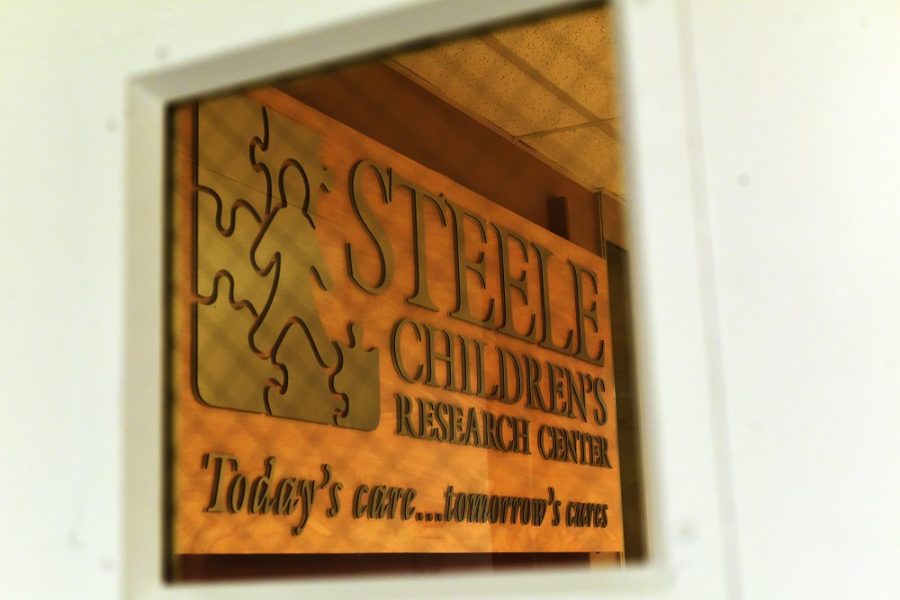The University of Arizona Steele Children’s Research Center recently opened its new Children’s Postinfectious Autoimmune Encephalopathy Center of Excellence, which offers clinical care for patients and focuses on research on the spectrum of post-infection autoimmune encephalopathies.
This spectrum of disorders occur when a child gets sick and their body’s immune system “misfires” and targets their body instead of fighting the virus.
Paul Ryan, president of the PACE Foundation, which helped with the creation of the center said the new center of excellence is the first of its kind.
The PACE Foundation, which works to improve the treatment, research and training of physicians, helped with the creation of the center.
While there are other clinics in the country that work with these kind of patients, he said the UA center is different in that it’s the first one geared to see a lot of kids, as well as conduct research.
At other clinics, patients are on waiting lists that can sometimes extend past a year, and some clinics only treat patients that live in a certain distance radius around the clinic, according to Ryan who said the UA center currently does not have a waiting list.
Darci Slaten, the director of communications for the Steele Children’s Research Center and the Department of Pediatrics, said the opening of a new center in the Southwest can help patients who would otherwise have had to travel to another area of the country to receive treatment.
“Some of these kids are super, super sick and can’t even travel,” Slaten said. “So the fact that there is now a center in the Southwest or in Arizona where we’re not filled up and we’re taking up patients is a great asset to Arizona.”
This spectrum of diseases center treats includes PANS (Pediatric Acute-onset Neuropsychiatric Syndrome) and PANDAS (Pediatric Autoimmune Neuropsychiatric Disorders Associated with Streptococcal Infections).
PANDAS affects one in 200[1] children, according to J.C. Konecny, the executive director of P.A.N.D.A.S. Network, a national nonprofit organization focused on raising awareness and funds for research on PANS and PANDAS.
The center’s structure combines research in the Steele Center and patient care at Diamond Children’s Medical Center, which Konecny said can be beneficial to patients because they only have one place to go.
Patients can travel to the UA center from across the country if they choose to do so; the center has already received calls from patients in other states.
Ryan said that this acceptance of patients regardless of their location, as well as the combination of a research facility that treats a high volume of kids, is unique.
“I think it sets a new model for both clinics and centers, which is an important model in that there’s no barriers to their [patient care],” Ryan said. “Our concern and [the doctors’] concern is to get kids and make them better. They aren’t going to draw the line just because you’re not from Pima County.”
Slaten said the PACE Foundation “got the ball rolling” when it contacted the head of the Department of Pediatrics at Diamond Children’s about creating a center in Arizona.
The National Institute of Mental Health and the UA Department of Health Sciences, got involved in the process of creating the center, which took around two years, according to Ryan.
Ryan credited the quick creation of the center to the “positive collaboration” between the different groups working on it.
“It’s a tremendous effort on a lot of fronts,” he said. “We’re very privileged at PACE to be part of it, and we probably were the seed that started spreading.”
Ryan said the UA is now part of a consortium of 14 universities that work with the National Institute of Health and the National Institute of Mental Health on disorders on this spectrum.
To get these kinds of disorders solved, the PACE Foundation is now focusing its role with the center on raising funds for the center’s research.
Ryan said that in the future, he hopes to expand the center’s reach throughout Arizona by setting up other clinics that work with the UA center and its standards of diagnosis.
[1]Correction: “PANDAS affects one in 2000 children, according to J.C. Konecny, the executive director of P.A.N.D.A.S. Network, a national nonprofit organization focused on raising awareness and funds for research on PANS and PANDAS,” was edited to “PANDAS affects one in 200[1] children, according to J.C. Konecny, the executive director of P.A.N.D.A.S. Network, a national nonprofit organization focused on raising awareness and funds for research on PANS and PANDAS.”
Follow Ava Garcia on Twitter.









